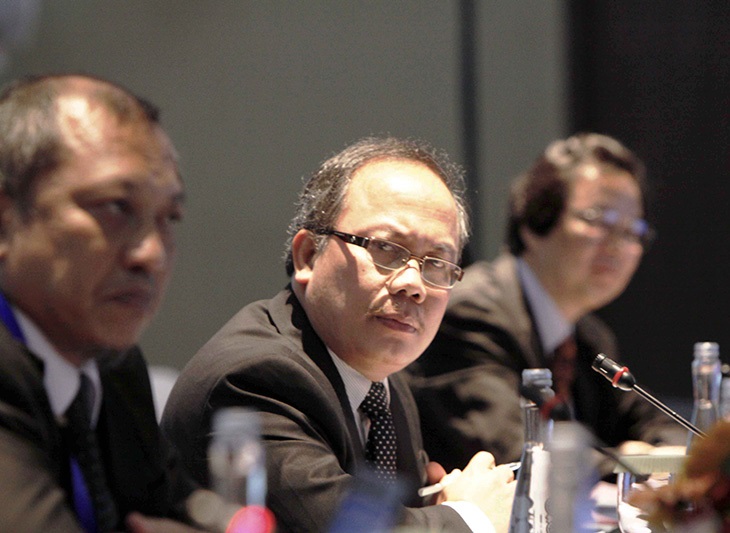APEC targets greater use of biotechnologies to enhance food security

APEC member economies are seeking to widen the availability of agricultural biotechnologies to help ensure adequate food supplies and boost the livelihoods of farmers.
Agricultural and biotechnology experts from around the Pacific Rim laid the groundwork for increased regulatory and technical collaboration in support of these objectives during a recent joint meeting in Medan. It is one of a cluster of agricultural-focused APEC gatherings that have been held here over the last week and a half and which concluded on Tuesday.
“Sustainable economic growth ultimately depends on worker productivity,” said Dr Kasdi Subagyono, who chaired a meeting between the APEC High Level Policy Dialogue on Agricultural Biotechnology and the APEC Agricultural Technical Cooperation Working Group. “For workers to be productive, they must have sufficient access to safe, reliable food supplies.”
“We are focused on improving innovation within the agricultural sector as a path towards greater food security,” Dr Subagyono explained. “This includes cross-cutting support for agricultural biotechnologies to enhance crop yields and reduce losses due to weather, pests or post-harvest transport and handling.” Greater innovation within the sector is needed to mitigate the effects of climate change on biodiversity and food production, he added.
The progress of this effort has important implications for business and socio-economic development.
Participants agreed that biotechnologies can boost production for small, rural farmers and thus play a role in alleviating poverty. Biotechnologies also have the capacity to lessen the impact of agriculture on the environment by limiting the need for pesticides and irrigation, they said. But their increased development and use require a complementary policy environment.
“When economies deploy varying rules and regulations for agricultural development and management, it becomes more difficult for new ideas and innovations to flow across borders,” said Dr Karden Mulya, representing Chair of the APEC High Level Policy Dialogue on Agricultural Biotechnologies.
“APEC economies are intent on enhancing policy harmonization within the sector,” Dr Mulya explained. “Such harmonization is needed to lower barriers that impact agricultural trade and investment, and foster the co-development and transfer of biotechnology that can benefit small-scale farmers.”
Measures that promote increased transparency and understanding of agricultural sector regulation are key agenda focuses. Providing governing bodies with knowledge and tools that support the implementation of best practices, identified through the sharing of experiences in biotechnologies and biogenetic resource management, is another area of emphasis.
“Coordinated agricultural policymaking and technical capacity building, for example, training on responsible investment principles and crop forecasting technology, can facilitate the more balanced adoption of biotechnologies in the region,” said Dr Tang Huajun, Lead Shepherd of the APEC Agricultural Technical Cooperation Working Group. “This will be an increasingly important element of our work to reduce business transaction costs, enhance marketing capacity and promote the implementation of agriculture-related provisions in free trade agreements.”
“Science and technology are of great importance in ensuring food security,” Dr Tang concluded. “As biotechnologies become a more integral component of agricultural production and public confidence grows as their value becomes more apparent, there is an opportunity to take significant steps forward in addressing the region’s long-term agricultural demands.”
# # #
For more information or to arrange possible interview opportunities, please contact David Hendrickson +65 9137 3886 at [email protected] or Michael Chapnick +65 9647 4847 at [email protected].
Additional details about APEC meetings, events, projects and publications can be found at www.apec.org. You can also follow APEC on Twitter and join us on Facebook.

